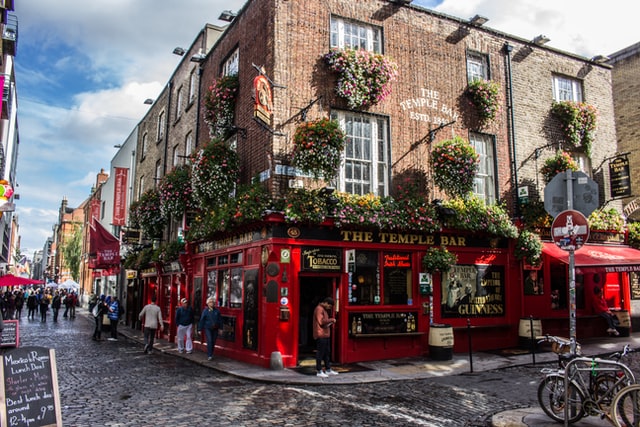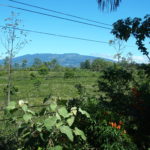How Not to Be a Victim of Busyness

I love long-term travel for the feeling of freedom it offers me. When I come home I often feel a little out of place. People are in full swing and busy with their jobs, children, hobbies, which all take lots of time and energy. Travelling also keeps one busy, with the adjustment to new places, people and cultures. I started to wonder what was so different about these two forms of ‘busyness’. I believe it’s to do with how we perceive our time.
The long-term traveller’s ‘time perspective’ can be quite different from that of people who take short holidays, and to people who don’t travel. Travel, and particularly long-term travel, can bring a spacious mindset that allows for reflection, curiosity and flexibility. Time is often viewed as abundant rather than lacking. This affects how we relate to others, and the time we give to that.
I was in Faro, Portugal a few months ago. I had just left an artist’s residency in the barren Portuguese countryside. Nobody seemed to speak English and the streets were empty except for the few old men sipping their beers. It was an ideal setting for writing, but after three weeks I was ready to return to civilisation.
I’d heard great reviews about a hostel in Faro that served delicious breakfast pancakes. I stayed there and quickly met travellers from Poland, Germany, the US, all of whom had stories of adventure, drama and fun. It was good to swap tales and recommendations over a coffee. These travellers had a time perspective of abundance.
Travel, and particularly long-term travel, can bring a spacious mindset that allows for reflection, curiosity and flexibility.
A good example of this was on my second day. An American girl said she was doing a day trip to the caves near Benagil. Another asked to join, and I did the same. Within a few hours we were on a train. We were joined by a guy from New York who was also heading in our direction.
We got to the local station and prepared to disembark, but to our surprise the doors closed before we could exit. What to do? The young New Yorker ran to the driver, whose door was open, and told him of our plight. The driver stopped the train and opened the doors.
We had to jump down onto the train tracks. I’d seen that in movies, usually after a train robbery, but I had never done it myself. It could have been perceived as a problem taking up our precious time, but we broke into laughter at this little adventure and made our way back to the platform, and on to the Algarve.
I recall returning home after another trip away and calling a friend to make a time to catch up. She said she was flat out but would love to catch up in six weeks. Her response was inconceivable to me. No time for a coffee for six weeks?! You can understand why many of us want to hop back on the next plane.
Research clearly shows that the time devoted to work has declined, yet people believe it has increased. We have more time, yet we feel that we have less.
Technology and innovation manager David Wong, in his article titled Time: Concepts & Trends writes of ‘time famine’. A time famine “is the feeling of having too much to do and not enough time to do it”. Studies have shown that 34% of people feel rushed all the time, with 61% never having any excess time and 40% saying that time is a bigger problem for them than money.
But do we have less time? Research clearly shows that the time devoted to work has declined, yet people believe it has increased. We have more time, yet we feel that we have less. Most of us tend to greatly overestimate the amount of time we spend working and underestimate how much free time we have. On average, people estimate that they have fewer than 20 hours of free time a week, which is about half of what they actually have.
I recently read a blog post by a girl who had visited six countries and eight cities in 13 days. Now that is a busy holiday! At home or on holidays, we need not be victims to busyness. As Brene Brown so succinctly puts it: “We wear busyness as a badge of honour. We’d be afraid of what people would say if we weren’t busy.”
Transitioning can be bumpy. It is clear there is a challenge with getting used to with different perspectives of time.
It is well known that long-term travellers can experience coming-home depression, or a feeling of the blues. Transitioning can be bumpy. It is clear there is a challenge with getting used to with different perspectives of time. Our friends are not horrid and though many “returnees” can experience a sense of disconnection and even isolation, it is unhelpful to get lost in these very real emotions as they will only hinder our reintegration and our overall well-being.
We can gain a lot by being aware of the varying perspectives on time. Rather than resisting, we can offer ourselves self-compassion in difficult times and show kindness to those relationships we cherish. Let’s resist the ever-pervasive busy mindset and bring the openness and curiosity to our lives at home. We are all in this together. Onwards and upwards.
Photo by Unsplash.








